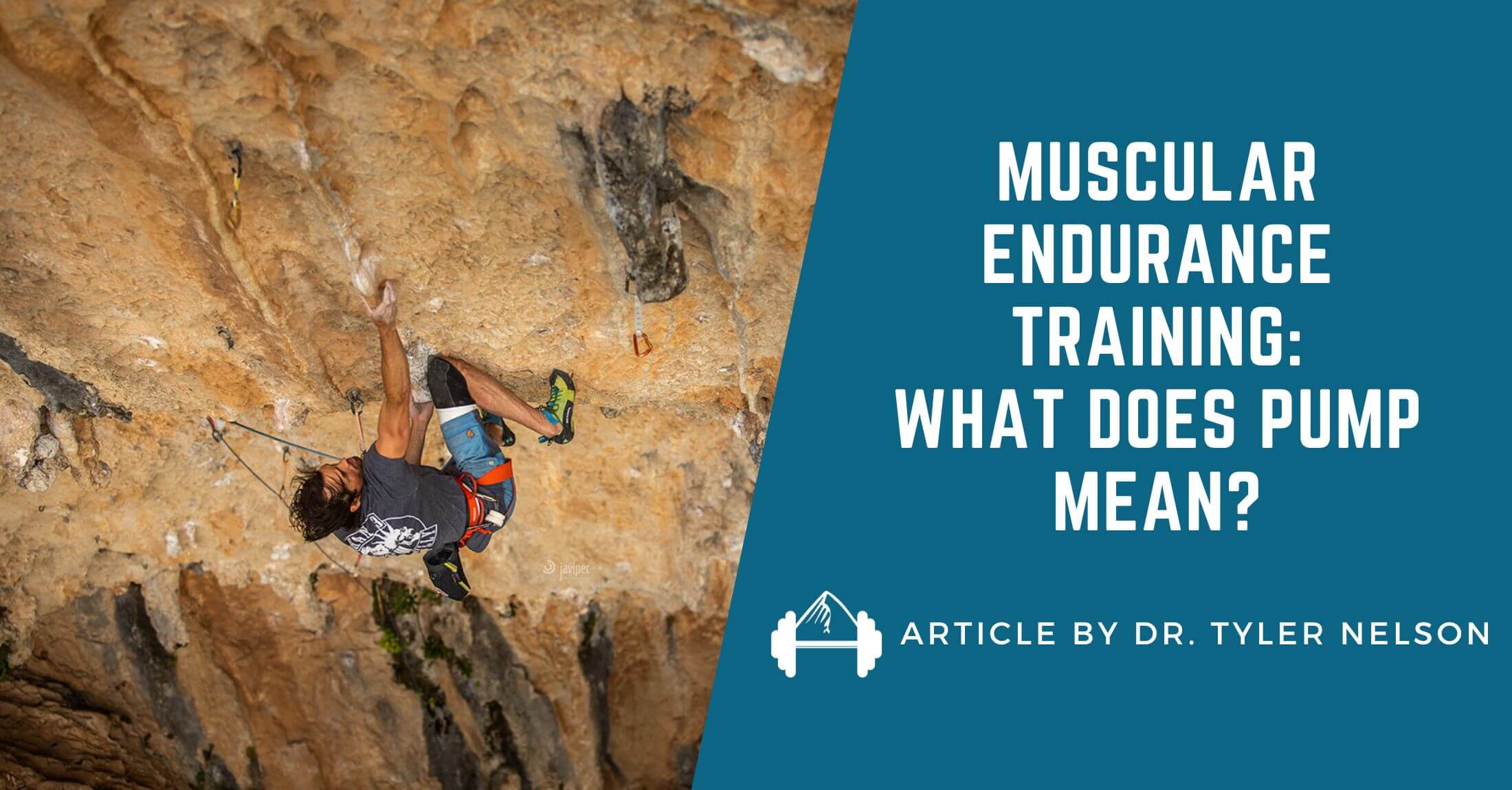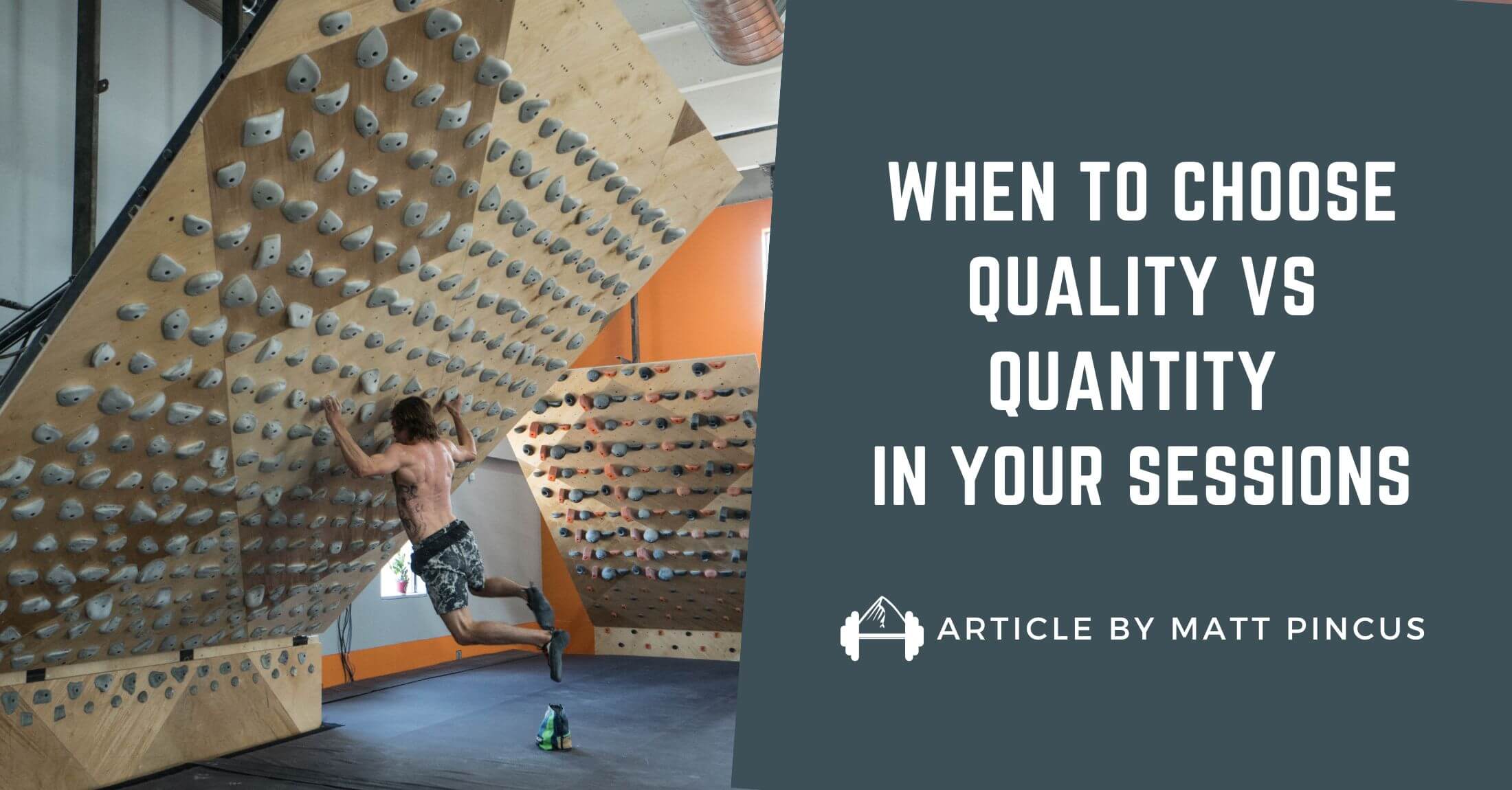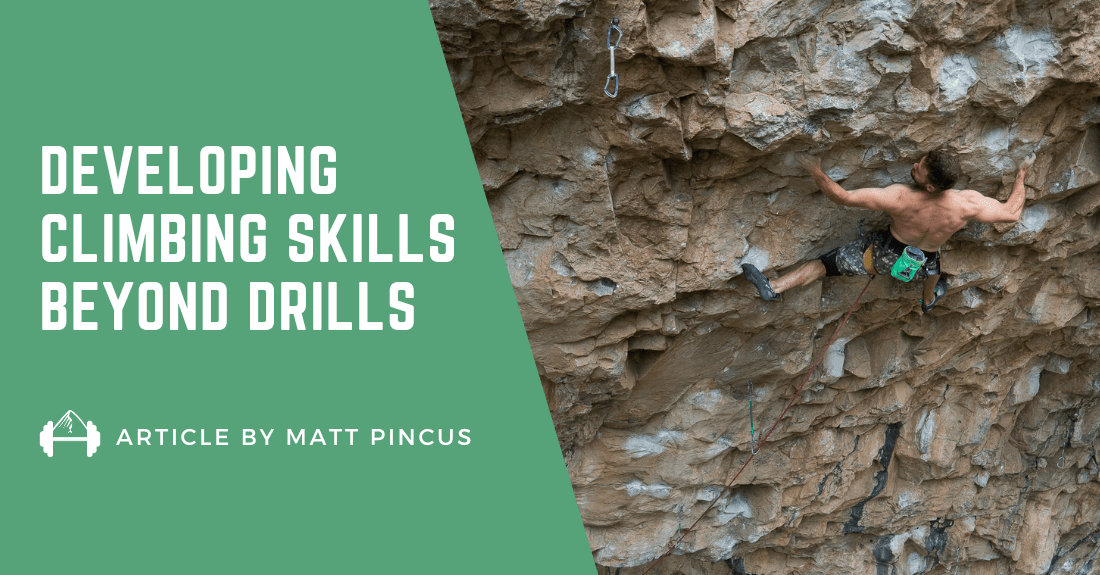As climbers, most of us always want to be pushing hard to progress our climbing. We want to be training as hard as possible when we are in the gym and sending as hard as possible when we are outside. These motivations are great and having this underlying drive is an important part of improving as a climber in the long run. However, it’s important that we differentiate training and performance and realize that they aren’t the same thing and can’t effectively be done at the same time.
To make this distinction really clear, here’s an excerpt from the TrainingBeta Podcast where Scottish climber, coach, and author Dave MacLeod talks about training vs performance and how many climbers go wrong in differentiating the two.
Differentiating between training vs performance may seem like a fairly simple division. However, it’s where many climbers, even very experienced ones, go wrong. Climbers routinely undermine the quality of their training by getting caught up in wanting to perform well during training cycles. Conversely, many climbers also prevent themselves from actually reaching their full potential by not being willing to put the training aside, focus on their primary goals, and make sure they are giving themselves the best possible chances to succeed.
Give this excerpt a read yourself and really evaluate whether or not you differentiate between training and performance. If you like what Dave has to say be sure to check out the full episode and transcript by clicking through below!
Dave MacLeod on Training vs Performance
Dave MacLeod: One big problem with climbing is that climbers are often trying to perform all of the time and not really train. You can’t train by going climbing. You have to approach it a little bit differently, and that’s one of the ideas in Nine out of Ten Climbers. To train, you really have to be working your body hard. Maybe not everyday, if you’re at a basic level/a novice level, but for a lot of climbers, training everyday with variety. You obviously need to push pretty hard whereas if you’re going to perform, you need to perform after a rest day, after you’re rested.
A lot of climbers don’t really differentiate between the two nearly as much as they ought to. Not just in training, as well a lot of climbers will – I was just in Magic Wood and there I was observing other climbers. People were saying to me, “What are you going to climb today, Dave?” and I would be like, “Oh, I’m resting today.” “Resting again?” “Yeah, I’m resting because I’m on performance mode and I’ve done my training. I’m here to climb the projects that are on my list. I want to climb really hard projects. I want to do it when I’ve got 100% strength so I’ll wait till I’m well-rested and wait till I’ve got really good skin.”
Some climbers who are trying to perform will end up doing too much bouldering and they’ll end up ruining their skin. They can never get a good attempt on their hard project because their skin’s not good enough or they’re only at 90% because they are a bit tired. They want to do an 8A+ but they’ll go around and do a bunch of 7C’s as well. Well, you could skip a couple of the 7C’s and do the 8A+ rather than do all the 7C’s and fail on the 8A+.
Neely Quinn: Right. So will you just wait as long as it takes to have good skin and full energy?
Dave MacLeod: Yeah. Bouldering trips tend to be day-on, day-off. Even if I’m only there for a week I’ll do day-on, day-off. It kind of seems hard to travel halfway across the world for seven days of climbing and take three of them off [laughs] but it means that those days work really well. I learned that a long time ago.
The first dedicated bouldering trip abroad that I ever went on, I went with a friend and he wanted to do his first 7C boulder and I wanted to do an 8A or just try 8A’s. If I could succeed on one then I’d be happy. We both had totally different strategies. He said he also wanted to go around and do quite a lot of problems and I said, “Well, I think I’m probably going to have to choose. I could do a load of 7C’s or I could do the 8A but not both.”
It was a really interesting experiment because I only climbed for about 90 minutes a day. I climbed everyday, but just for 90 minutes. I rested all the morning and I supported my friend, who did [unclear] a bunch of other stuff and his climbing standard went down about half a grade everyday, just because he was getting more tired. He was probably getting fitter, he just wasn’t well-rested. He was like, “I just don’t want to take a rest day.” I was like, “Yeah, I totally agree. Neither do I. I just want to make sure I do these routes.”
I was working on all these 8A’s but not long enough to actually do them because 8A was actually quite close to my limit at that time. On the fifth day I had 90 minutes of climbing and I went round and I did all 8A’s first try, I think. Five 8A’s. After that trip I was like, ‘Right. I definitely learnt something there. If you are on performing mode, do it rested and have the good redpoint or if you’re on training mode, train like hell and work yourself hard and trash yourself.’
I mean, when you’re on a trip you can switch between one or the other. Say you’ve got a two-week trip or a three-week trip. You can do the first week on training mode and do redpoints and onsights every day and trash yourself, and then on the last week you can do the opposite and have day-on, day-off and then you’re just climbing like a machine and that’s when you’ll be able to pull off the redpoint.
Full Episode/Transcript: TBP 039 :: Dave MacLeod on Training, Injuries, and Fear
(photo courtesy of onlineclimbingcoach.blogspot.com)
Other Articles You Might Like:
- Dave MacLeod: Edge Hangboard and How-To Hangboard Video
- If It Wasn’t Hard, It Would Be Easy- Dave MacLeod
- Dave MacLeod and The Fear of Falling
- Love is the Answer- Dave MacLeod






Leave A Comment